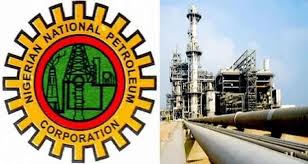The latest data from the Nigerian National Petroleum Corporation have shown that the government-owned refineries in Nigeria recorded total loss of N177.21bn due to inability to process any barrel of crude oil in 19 straight months.
The refineries, which are located in Port Harcourt, Kaduna and Warri, have a combined installed capacity of 445,000 barrels per day but have continued to operate far below the installed capacity. Analysis of data collated from NNPC’s monthly reports revealed that all the refineries did not refine crude oil from July 2019 to January 2021.
The refineries have remained in a state of disrepair for many years despite several reported repairs, and the country relies largely on importation of refined petroleum products.
Kaduna Refining and Petrochemical Company Limited only processed crude in one month (June 2019); Port Harcourt Refining Company Limited in two months (February and March 2019); and Warri Refining and Petrochemical Company Limited in four months (January, February, March and May 2019).
In its latest monthly report, NNPC said the declining operational performance is attributable to ongoing revamping of the refineries, which is expected to further enhance capacity utilization once completed.
Through the Direct Purchase-Direct Sale arrangement, 1.68 billion litres of Premium Motor Spirit (Petrol) were supplied into the country in January 2021 as against the 1.58 billion litres of petrol supplied in the month of December 2020.
In March, the Federal Executive Council approved the plan by the Ministry of Petroleum Resources to rehabilitate the Port-Harcourt refinery with $1.5 billion.
Early this month, the NNPC and Maire Tecnimont S.p.A. signed the engineering, procurement and construction contract for the rehabilitation of the refinery.
In the first term of the President, Muhammadu Buhari, the NNPC had planned to rehabilitate the refineries to attain a minimum of 90 per cent capacity utilisation.
The plan was to use third-party financiers and the original refinery builders to provide the requisite funding and technical support. But due to varying positions on key commercial terms, negotiation with financiers were stalled in December 2018 after over one and a half years,

